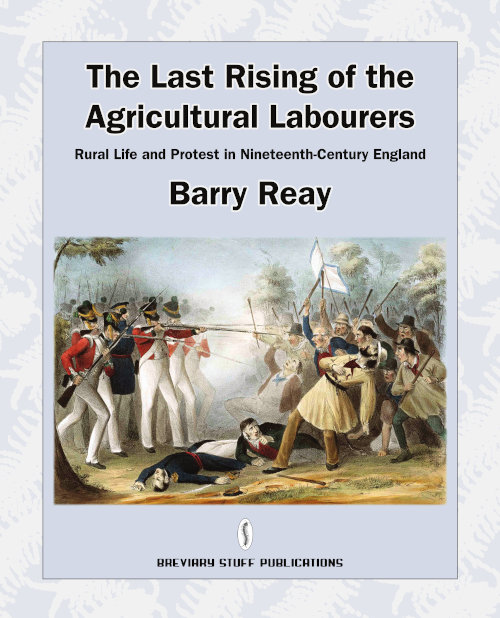- List of Plates
- List of Figures
- List of Maps
- List of Tables
- Abbreviations
- Introduction
- PART I THE SETTING
- 1. Structures
2. Labouring Life
3. Conflict and Discontents - PART II THE RISING
- 4. The Rising
5. Courtenay
6. The Rioters - PART III THE AFTERMATH
- 7. Repercussions
8. Epilogue - PART IV IMPLICATIONS
- 9. Rural Life and Protest in Nineteenth-Century England
- Index
Barry Reay – The Last Rising of the Agricultural Labourers
£15.00
The Hernhill Rising of 1838 was the last battle fought on English soil, the last revolt against the New Poor Law, and England’s last millenarian rising. The bloody ‘Battle of Bosenden Wood’, fought in a corner of rural Kent, was the culmination of a revolt led by the self-styled ‘Sir William Courtenay’. It was also, despite the greater fame of the 1830 Swing Riots, the last rising of the agricultural labourers.
Barry Reay provides us with the first comprehensive and scholarly analysis of the abortive rising, its background, and its social context, based on intensive research, particularly in local archives. He presents a unique case-study of popular mobilization in nineteenth-century England, giving us a vivid portrait of the day-to-day existence of the farm labourer and the life of the hamlet. Dr. Reay explores the wider context of agrarian relations, rural reform, protest and control through the fascinating story of The Last Rising of the Agricultural Labourers.




